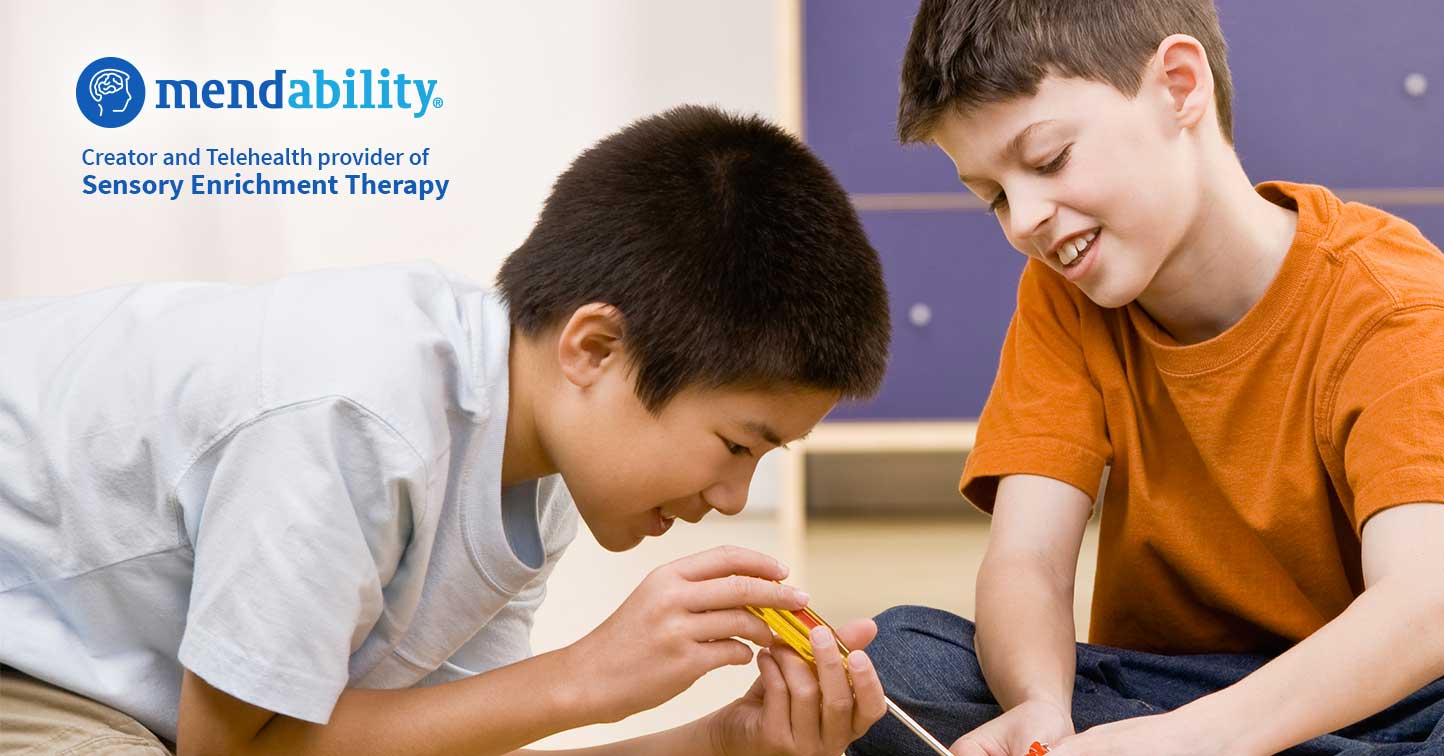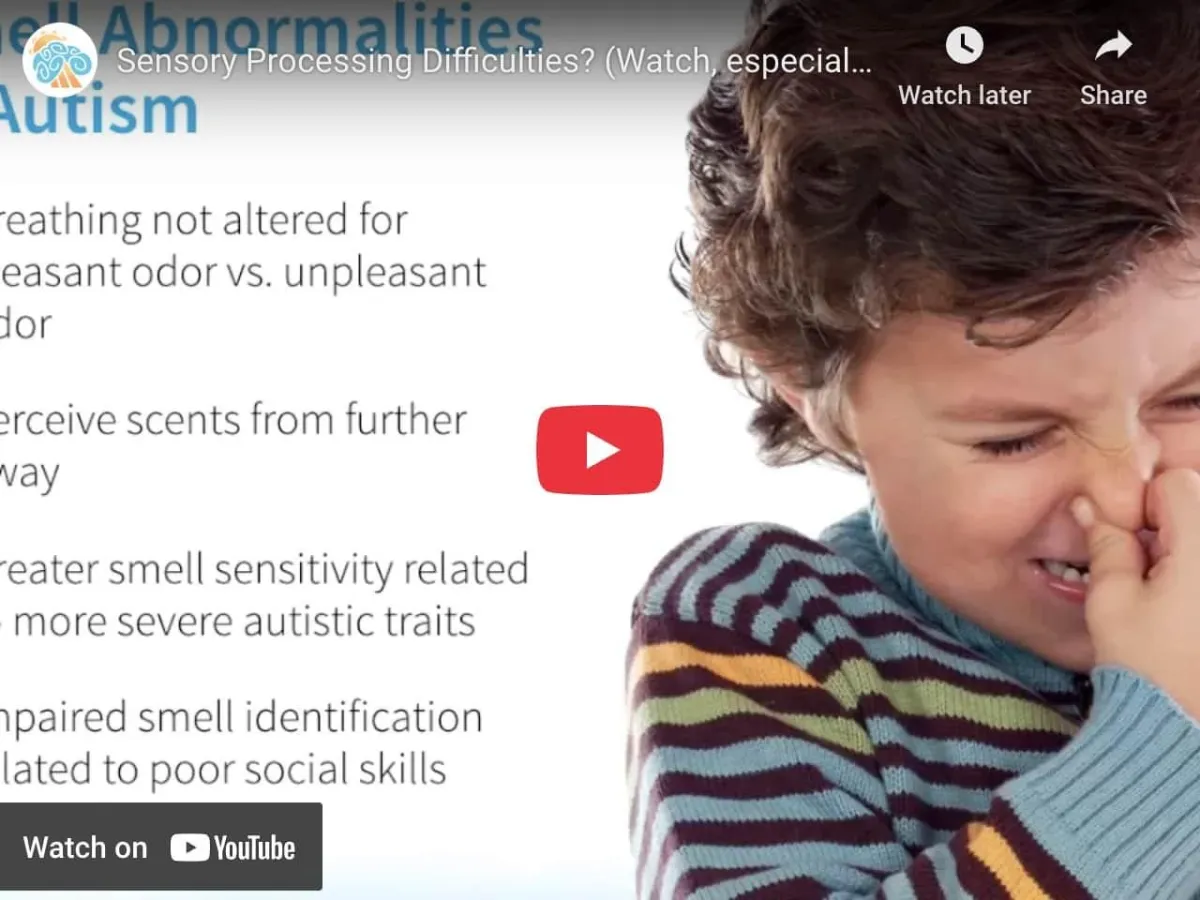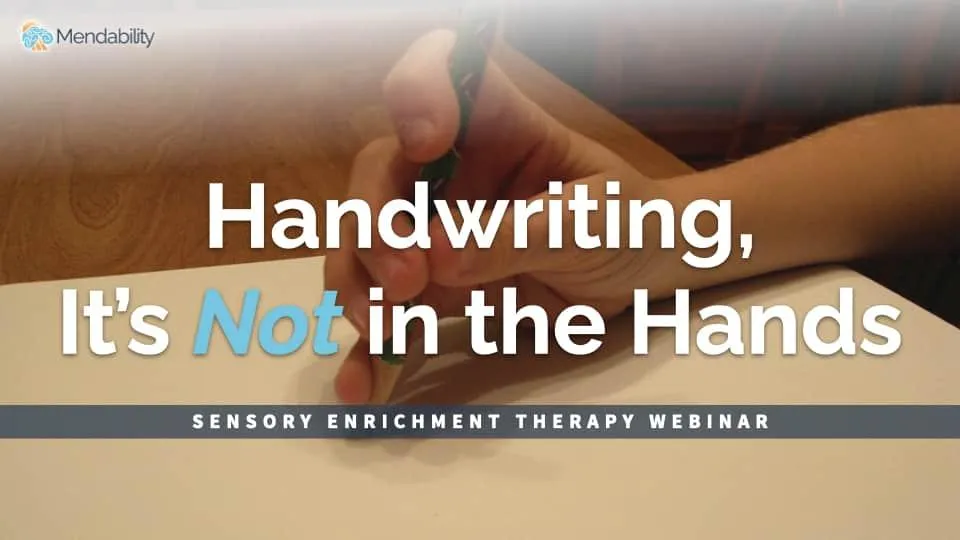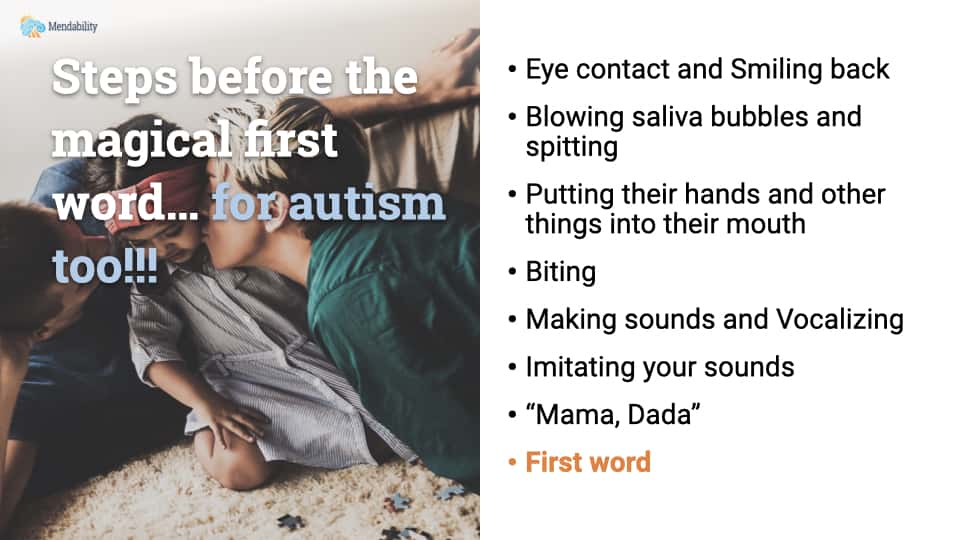
Sensory exercises for successful playdates
Everyone wants a friend
Friendships are important to most of us because they provide a sense of belonging that is related to our identity and self-awareness. As a parent of a child with autism you want your child to experience this too.
A first step for many parents of school-aged children, can be to organize a playdate. In this article we will address a few simple things that you can do to help your autistic son or daughter have a positive and successful playdate with another child.
Why are playdates harder for children with autism?
Autistic people of all ages have some common difficulties when it comes to social engagements. These challenges can include:
Sensory processing issues – Many individuals with autism process sensory information very differently. For example, research shows that light touch can be processed as pain due to a malformation in the brain. Studies also show that autistic people have a smaller field of vision. This means that an autistic child may not see a peer beside him and then be startled when he turns his head to see his friend so close to him(Schauder, Muller, Veenstra-VanderWeele, & Cascio, 2015)(Libero, DeRamus, Lahti, Deshpande, & Kana, 2015)(Song, Hakoda, Sanefuji, & Cheng, 2015). The sensory overload that many autistic people experience can make it uncomfortable or painful for them to be around a lot of people and noise.
Communication challenges – Individuals with autism deal with a range of communication challenges that can impact their interactions with their peers, from being non-verbal, to using only scripted language, to being verbal but having great difficulty in interpreting body language or recognizing humor.
Body language – Autistic people have considerable difficulty reading facial expressions and interpreting body language. This can impact their struggle to understand how others feel. (Alaerts et al., 2013; Schultz et al., 2000) Regarding the understanding of social cues, children with autism may misinterpret the proximity of a peer. Also, individuals with autism do not process the social meaning of touch. You can read more about the science behind this here. These issues can be an obstacle to interacting with other people.
Self-awareness – A person’s self-awareness and sense of others depends on being able to mentally see oneself as a permanent individual in time and space. Children with autism typically lack self-awareness, which impacts their sense of others as being different entities. (Hobson, Peter Hobson, & Meyer, 2005)
Social rules – Social rules are made up by adults, differ from country to country, and don’t always have an obvious explanation. For example, body noises are not interpreted in the same way by all cultures. Personal space is also a concept that varies from culture to culture. In Nigeria when a visitor enters a home, he or she has to shake hands with each person present, from oldest to youngest, including any babies. In contrast, the Chinese avoid physical contact when welcoming a visitor. Without a proper understanding of the underlying reasons behind social protocols, autistic individuals may become very anxious as they wonder how to adapt their learned protocols to a new social experience.
Humor – Scientists have found that people with autism do not understand cartoons and jokes as well as their peers. (Emerich, Creaghead, Grether, Donna, & Carol, 2003) Humor involves the ability to imply a meaning beyond the literal meaning of a word or group of words and create a mental image of the situation defined by those words. For example, a neurotypical person might think that the following expression is an amusing description: “She’s so tall, if she fell down she’d be halfway home.” Yet an individual with autism might understand the same words as literal information and be confused as to where such a tall woman could live.
Some Sensory Enrichment exercises to try at home
To enable your child to enjoy a new social experience like a playdate, you may wish to help him to ‘practice’ sensory processing in his areas of difficulty.
Here are links to video instructions for two brief exercises that you can try using equipment that you probably already have in your home:
Tactile processing: Multi Textured Path
Auditory processing: symphonic music each day
Tips for successful playdates / times with friends
Self-awareness and sense of space
Autistic children have difficulty with self-awareness and their sense of space. Here are some practical recommendations to help you make the environment seem less threatening when you invite another child to come to your home (or when your child goes to someone else’s home).
Place a bed sheet on the floor to define the play space. The aim is to to reduce your child’s anxiety that could increase by moving from room to room.
Set boundaries with chairs, toys, boxes and neutral objects. You can tell the children that they are in a fort, or a special magic area to encourage them to work with you on the concept of boundaries. Autistic individuals tend to find enclosed spaces reassuring and calming.
Prepare activities that do not involve your child’s favorite toys or games to avoid issues with sharing. Children with autism sometimes have a specific attachment to objects. We recommend that you do not bring out your child’s favorite items during a playdate because your child might be upset to see his/her peer using her special toy in a different context. Instead, try using a couple of new toys for your social activity.
Communicate with your child
Talk with your child about what is going to happen. Let him/her know that someone is coming over and the other child will probably touch his/her toys and games. Your child may not understand everything you say, but your attempt to communicate can build trust and help your child to feel supported.
Explain the details of the playdate to your child: start time, end time, what will happen, and how it will happen.
Talk about good things to say when it’s time to leave and things to avoid talking about.Prepare for an emergency: make sure your child knows how to let you know that he/she has reached the limit of his/her tolerance before a crisis arises.
Sensory Processing Tips
Your child may be having a hard time with sensory issues of which you are not aware.
Here are some recommendations for things that you can implement to lessen sensory difficulties for your child and help him/her to have a successful visit with a potential friend:
Use a scent diffuser to add a pleasant smell to the area where they will play.
Prepare snacks that will not cause contention (i.e. foods that are simple, pleasant, familiar and sharable, but maybe not your child’s absolute favorite food if that might be too hard to share).
Put the phone on vibrate to avoid surprise sounds that can increase stress levels.
Speak in a soft, soothing voice when you communicate with your child and his/her friend.
Turn off the TV and other sources of noise. For example, if a sibling is playing an electronic game on an handheld device with lots of sound effects, you could ask him/her to mute it or move to a different room.
Mendability can help improve social skills and self-awareness in children with autism
Implementing a few of these suggestions will increase the likelihood of your child having a successful social interaction the next time you invite a playmate to your home.
Sensory processing, social skills, and self-awareness are a few of the areas where people doing Sensory Enrichment Therapy report seeing the most progress.
Below are a couple of examples of people who did Mendability therapy:
Ruth, a young adult with Asperger’s could not go to social events, travel alone, or attend college independently. Ten months after starting Mendability, she took a long bus trip on her own. She is now a full-time college student. Watch Ruth tell her story with her mom.
A teenage boy with autism refused to use the bathroom at school, hid under his desk during class, and suffered overwhelming issues with worry and obsessions that stopped him having any social interactions. After doing Mendability for a year he is now in college, living in dorms.
References
Alaerts, K., Woolley, D. G., Steyaert, J., Di Martino, A., Swinnen, S. P., & Wenderoth, N. (2013). Underconnectivity of the superior temporal sulcus predicts emotion recognition deficits in autism. Social Cognitive and Affective Neuroscience, 9(10), 1589–1600.
Emerich, D. M., Creaghead, N. A., Grether, S. M., Donna, M., & Carol, G. (2003). Journal of Autism and Developmental Disorders, 33(3), 253–257.
Hobson, R. P., Peter Hobson, R., & Meyer, J. A. (2005). Foundations for self and other: a study in autism. Developmental Science, 8(6), 481–491.
Libero, L. E., DeRamus, T. P., Lahti, A. C., Deshpande, G., & Kana, R. K. (2015). Multimodal neuroimaging based classification of autism spectrum disorder using anatomical, neurochemical, and white matter correlates. Cortex; a Journal Devoted to the Study of the Nervous System and Behavior, 66, 46–59.
Schauder, K. B., Muller, C. L., Veenstra-VanderWeele, J., & Cascio, C. J. (2015). Genetic Variation in Serotonin Transporter Modulates Tactile Hyperresponsiveness in ASD. Research in Autism Spectrum Disorders, 10, 93–100.
Schultz, R. T., Isabel, G., Ami, K., Fulbright, R. K., Anderson, A. W., Fred, V., … Gore, J. C. (2000). Abnormal Ventral Temporal Cortical Activity During Face Discrimination Among Individuals With Autism and Asperger Syndrome. Archives of General Psychiatry, 57(4), 331.
Song, Y., Hakoda, Y., Sanefuji, W., & Cheng, C. (2015). Can They See It? The Functional Field of View Is Narrower in Individuals with Autism Spectrum Disorder. PloS One, 10(7), e0133237.
Is making friends an area of concern for you or your loved one?
Sensory Enrichment Therapy™ helps develop social skills by boosting brain development in these areas.
Get In Touch



